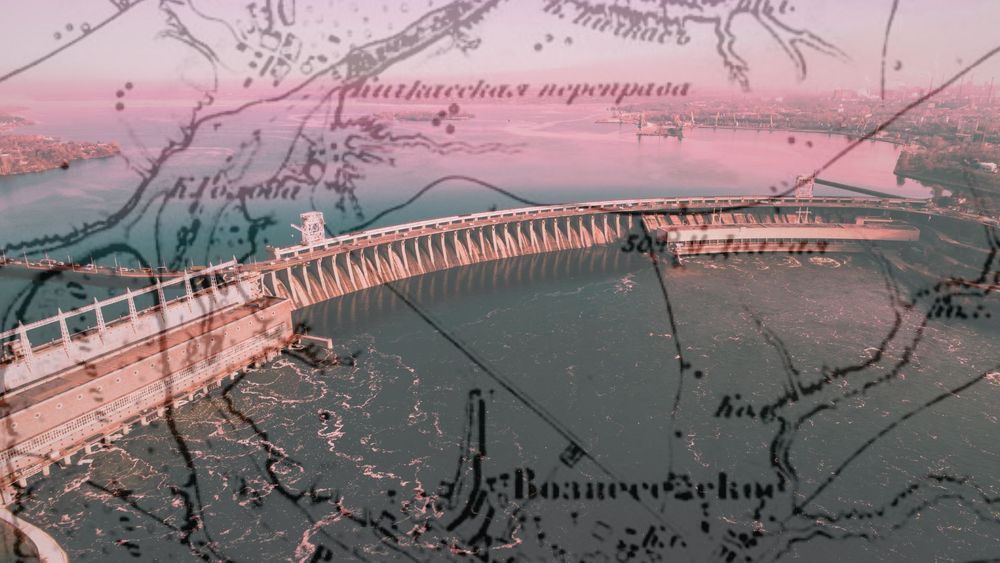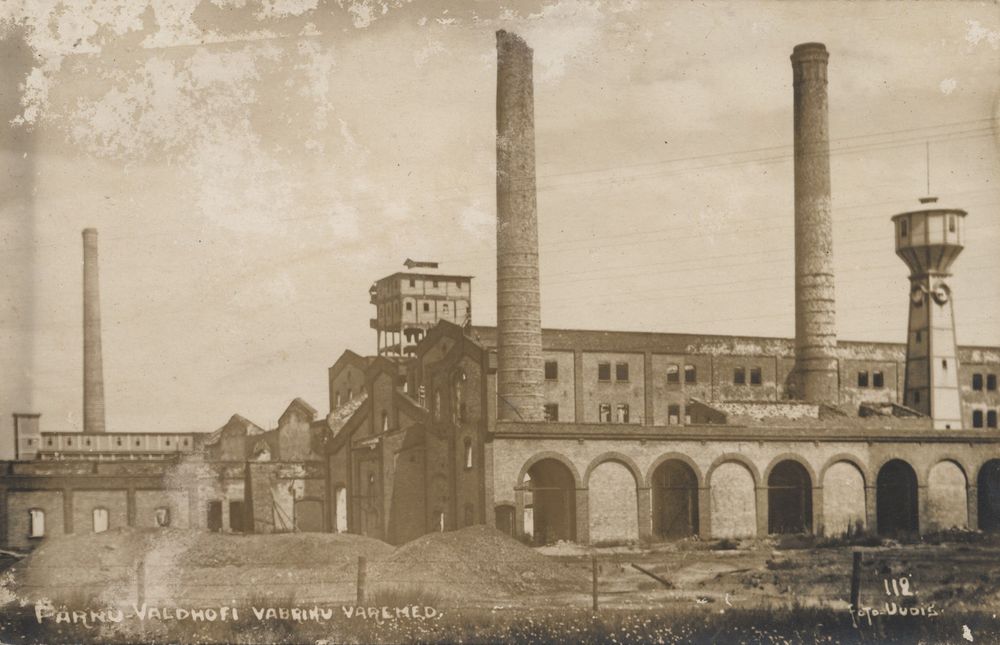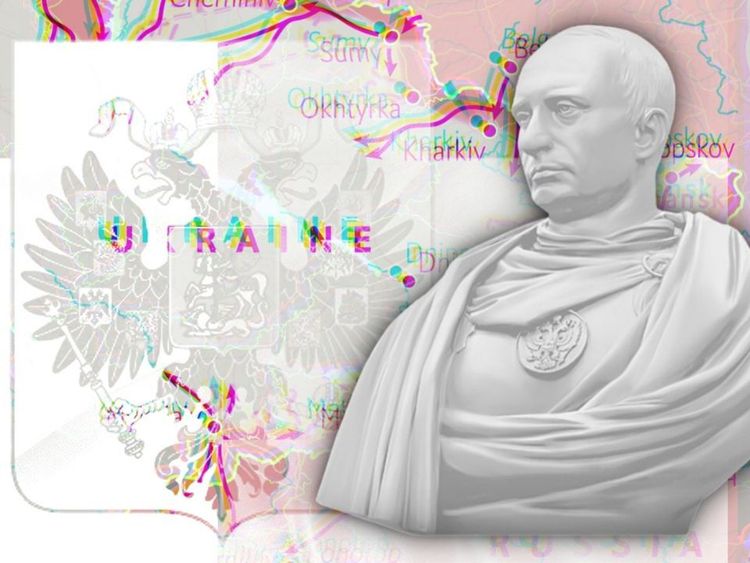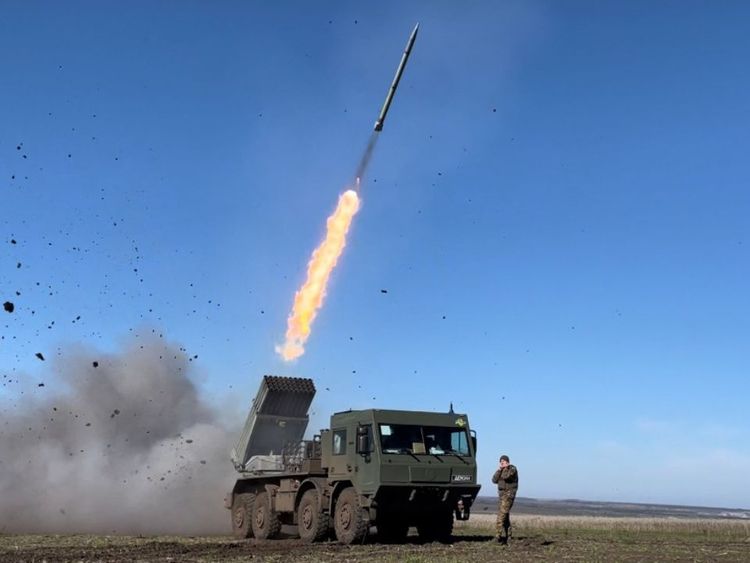Publications for tag «War»

One of the defining images of this war is… a pipeline. No matter the ongoing death and destruction, no matter the evermore persistent calls for an embargo on Russian fossil fuels (including from Russian and Ukrainian climate activists), oil and gas just keep flowing.

Ukraine’s energy infrastructure is a major Russian military target. But the system also faces another enemy: climate disasters putting ever more strain on the power grid.

Murad Gattal spoke to Azerbaijani trade unionists and left-wing activists about the state of society following Ilham Aliyev’s election for the fifth presidential term and the Third Karabakh War. The rise of authoritarian tendencies and nationalist rallying around the flag that followed in the aftermath of the ‘small victorious war’ brings up questions about the future, and even existence, of the left movement in the country.

September went to the Ludwig Maximilian University of Munich (LMU) Palestine solidarity encampment to meet with Leila, a long-time activist, and co-founder of Munich’s chapter of ‘Palästina Spricht’, a movement for the rights of Palestinians and against racism in Germany. We discussed the situation in Palestine and Israel, the current state of the Palestinian solidarity movement, the role of the international institutions in the Palestinian struggle for self-determination, and the repression Palestinian and Jewish anti-zionist activists currently face in Germany.

It often seems that the problem of industrial pollution of the environment is a fairly new phenomenon, which became a topic of wide social discussion only in the second half of the 20th century. Even more novel is the attempt to link environmental problems with issues of state security and protectionist measures. Historian Andrei Vinogradov, using the example of the Waldhof paper mill in Pärnu, shows that more than 120 years ago, issues of exploitation of nature, the imperialist confrontation between the “great powers” and the destruction of the traditional way of life of indigenous peoples were closely intertwined, and environmentalists often had to appeal to “state interests”, to be heard.

In July 2023, the international left-wing community was shaken by the news of the imprisonment of Boris Kagarlitsky on the factitious charges of “justifying terrorism”, a code word for his staunch anti-war position. Karaglitsky, the well-known post-Soviet public intellectual, who was previously imprisoned under Brezhnev and Yeltzin, was abducted in Moscow and brought to Syktyvkar, 1,300 kilometers to the north of Russia’s capital. The aim was to isolate Kagarlitsky and cut him off support of his comrades. However, a strong international solidarity campaign led to the sociologist’s release back in December. Now, with his case reopened, Kagarlitsky who refuses to leave Russia as a matter of principle faces five years in prison. September Collective publishes this letter, which Boris wrote from behind bars, to call for reopening of the solidarity campaign for his immediate release with renewed vigor. Freedom to Boris Kagarlitsky and all political prisoners in Russia!

A huge scandal in Canadian politics and a painful blow to Ukraine's reputation — these are the terms used by the media to describe how the Canadian parliament and the Ukrainian delegation headed by President Volodymyr Zelenskyy gave a standing ovation to Yaroslav Hunka, a veteran of the Waffen-SS division ‘Galicia’. But how come he was invited to the parliament? Who ‘framed’ Canada and Ukraine? Who gave such a ‘gift’ to Russian propaganda? The Speaker of Parliament, Anthony Rota, took political responsibility for this and resigned. However, it is hard to believe that Mr. Rota knew the SS veteran personally and dreamed of bringing him into the limelight for the whole country to watch. There was someone who came to him with this ‘brilliant’ idea. Let's find out who.

"September" met with mathematician and Russian left-wing politician Mikhail Lobanov to discuss his foreign agent status and his dismissal from the university. We also discussed the potential approaches to anti-war political organizing in Russia and beyond, and learned about Mikhail's plans for the "long-term political mission trip" he embarked on a month ago.

We live in historic times. Historians have long noted that in some periods time seems to thicken, and social contradictions which had previously unfolded gradually are now aggravated and can no longer find room for further coexistence. Current leaders might assure the masses that they are in control of the situation, but if the system goes haywire, this very attempt at mistimed control only worsens the conditions. Gigantic underlying processes are grinding at the superstructural mechanisms, and rulers do not realise the moment that in the long run will make them ex-rulers.

Big business, it seems, is that segment of the Russian elite which has lost most of all in the last year. Russian oligarchs have transformed from yesterday’s welcome guests in London, Monaco or Nice into personae non-grata. Their accounts are emptying, the list of Forbes billionaires is shrinking, and maintaining their usual standard of living is no longer sustainable. However, the ‘revolt of the oligarchs’ expected by many did not happen. We will try to understand how realistic such expectations were, why big business remains an organic part of the Russian political regime without requesting democratisation, and what has changed in its position within the system over the last year.

1991, Leningrad. The private office of the deputy mayor of the city. A reporter for the city's television channel interviews a young official from Anatoly Sobchak's team. In the frame — a man with a childish face in a white shirt. Behind him, you can see window blinds, a television, a table lamp, a telephone, open folders with papers. A typical Soviet office environment. But something does not add up. From behind the scenes, the voice of the journalist says that yesterday, he could still see a bust of Lenin in this office, but today it had disappeared somewhere. What had happened?

Murad Gattal on the causes and prerequisites for a new escalation in the Armenian-Azerbaijani conflict and the transformations that it caused in Azerbaijani society.

September met with Zhanna Chernenko, founder of two volunteer groups – Fempodmoga and Lingvo Volunteers, which help Ukrainian refugees in Europe in solving a variety of problems: from translating documents to cases of harassment and violation of labour rights.

Ukraine aid, like the war itself, is a point of contention on the international left. Supporters see aid as essential for Ukraine’s defense against an imperialist invader. Skeptics regard it as a giveaway to the war industry at best, a fig leaf for the US empire at worst. The dilemma is that both sides have a point. Aid has enabled Ukraine to push back its occupier, but — funneled through the military-industrial complex of the United States — this success is bound up with both war profiteering and the maintenance of US hegemony. Supporters of aid, among whom I count myself, need to grapple with this ambiguity, which is indicative of the complex issues anti-imperialists will face as great power competition heats up in an increasingly multipolar world.

At the end of October, Arshak Makichyan, a climate activist and Fridays for Future participant, and three of his family members — his father and two of his brothers — were stripped of their Russian citizenship by court order. Russian citizenship was the only one they had; the family had moved to Russia from Armenia when Arshak was one year old. The court ruled that Russian passports had been issued to them illegitimately; in the case of the Makichyans, some documentation was missing, which the Ministry of Internal Affairs itself lost during their registration. In February 2022, Arshak had declared his anti-war position, and a month later left Russia. He is now sure that the decision of the court was caused by his civil position. September discussed with Arshak the significance of this precedent for activism in Russia and the connection between anti-war and environmental protest, as well as the COP27 summit, the strategy and tactics of the climate movement, and prospects for a green transition.

September spoke with Baiel Isayev, a Marxist and member of the organization KYRGSOC, about the socio-economic problems in Kyrgyzstan, the structure of Kyrgyz society, the impact of the Russian-Ukraine war on the region, and attitudes towards the Soviet past.

Alexander Korchagin, a student activist, spoke to activists from several universities and told us about the current state of student anti-war activism in Russia.

September met with a municipal deputy of Moscow’s Zyuzino district and an author of For Democracy: Local Politics Against Depoliticization, Alexandr Zamyatin to discuss the reasons to take part in local elections in times of war, depoliticization in Russian and Western societies, and how to overcome it, VyDvizhenie — a support platform for independent candidates Zamyatin founded together with Mikhail Lobanov, — and on the recent transformations of Russian political regime.


